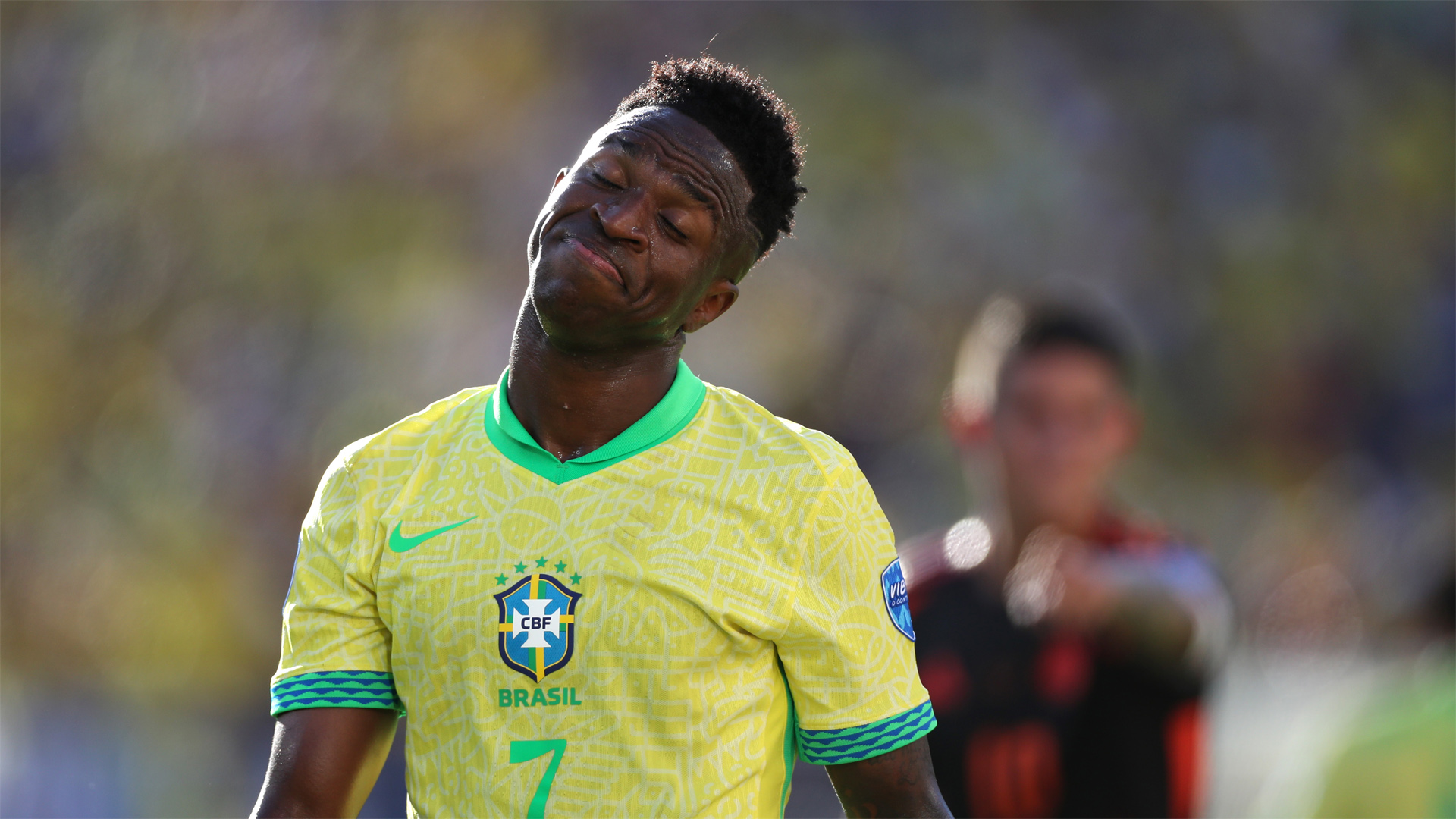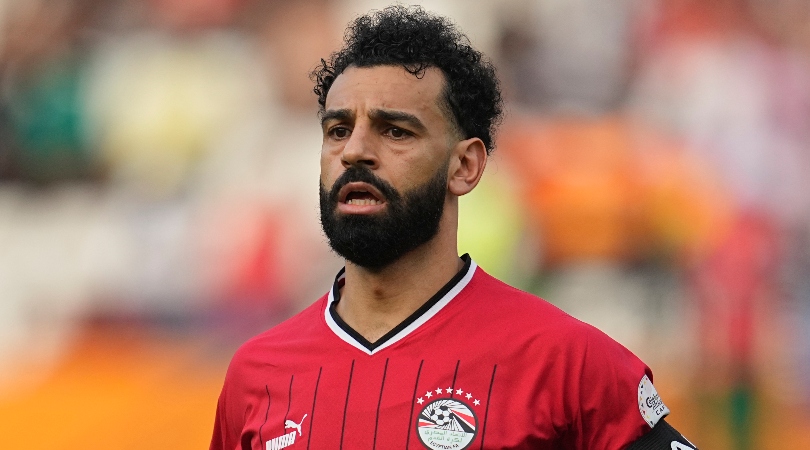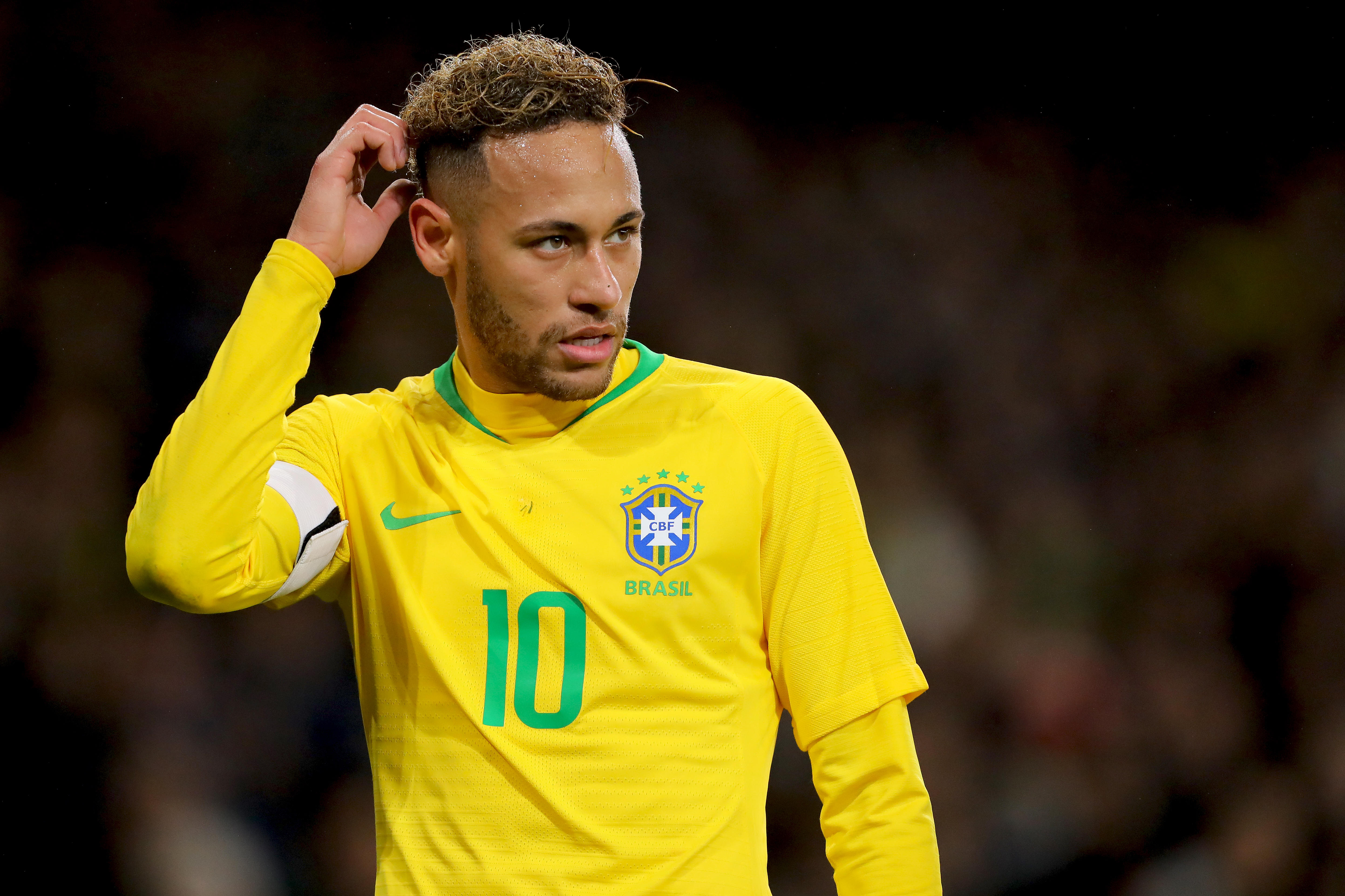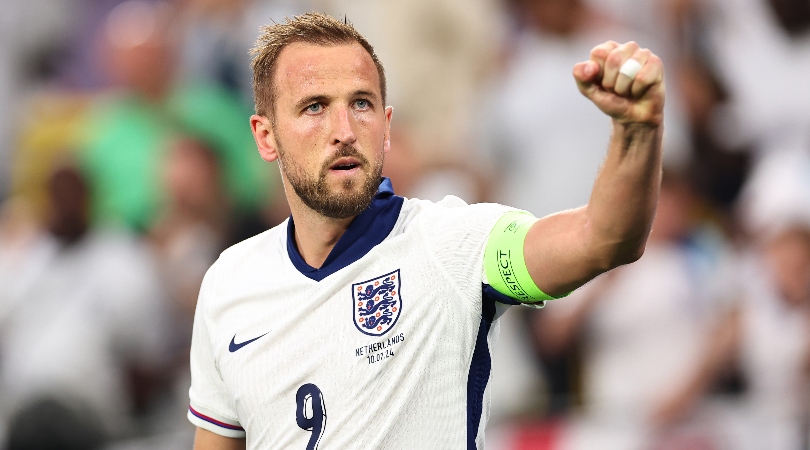
A World Cup without Brazil? It's never happened before...but their qualification hopes still hang in the balance ahead of the World Cup 2026.
As co-hosts Canada, Mexico and the United States are the only three nations confirmed to take part at the next World Cup, leaving another 45 places at the expanded tournament up for grabs.
Here's the state of play around the various confederations at this relatively early stage of the qualification process, including a few of the key talking points for each - including some recognisable names that might miss out.
VIDEO Why Lee Carsley Might Fix England
World Cup 2026 qualifying: Inter-confederation play-offs
We're actually a long way off from playing the inter-confederation play-offs, but we're going to be referencing it a lot, so probably best we actually explain what it is first.
At the end of the six confederations' normal qualification campaigns, six sides who have not already qualified for the World Cup will play a mini-tournament: one from each confederation except UEFA, who will not be involved.
Instead, CONCACAF (North America and the Caribbean) will have two representatives, to make up for two of their usual qualification slots having been taken up by the hosting duties being divided between Canada, Mexico and the US.
Each confederation has different means for determining who will represent them, which we'll get to in turn.
The two highest-ranked sides based on FIFA World Rankings will go straight into separate play-off finals, with the other four unseeded sides playing semi-finals against one another. The winners of the two finals will go to the World Cup.
AFC (Asia)
The AFC qualifiers are approaching halfway, with two games played in the third of five qualification stages. AFC will eventually send eight teams to the World Cup 2026, with a ninth entering the inter-confederation play-offs.
The Asian sides (plus Australia) have so far been narrowed down to 18 teams, who are currently playing a home-and-away round robin in three groups of six. The top two sides in each group will go straight to the World Cup.
The teams ranked third and fourth in each group will then be split into another group stage made up of two groups of three, with the group winners also going to the World Cup. The runners-up will compete two-legged play-off to see who represents Asia in the inter-confederation play-offs.
So far, two of the ten rounds of games have been played. You'd think the Australians would have an advantage in a Home And Away format, but they're actually struggling so far: they've lost at home to Bahrain and drawn away to Indonesia and sit fifth in a tough Group C. In the same group, China have meanwhile been battered 7-0 by Japan and lost at home to Saudi Arabia.
Uzbekistan, Iran (both Group A) and Japan (Group C) so far have 100% records, while Jordan and South Korea lead Group B on goal difference with four points each (ahead of Iraq) and Saudi Arabia are second in Group C; but with eight more games to play in each group, there's still plenty of time for the picture to change.
CAF (Africa)

The African nations are also in a group stage, split into six groups of six - with one exception, following Eritrea's withdrawal before the games began, making Group E a fivesome. AFC have six direct qualification slots, plus one inter-confederation play-off place.
The sides will play each other home and away within their respective groups. The group winners go straight to the World Cup, and the runners-up entering a play-off to determine the inter-confederation play-off representative.
Four of the maximum of ten rounds of games have been played, and most of the groups are still very tight - but Egypt have opened up a four-point lead at the top of Group A, Morocco are three points clear in the smaller Group E, and Sudan are two points ahead of Senegal in Group B.
Cameroon and the Ivory Coast are currently group leaders by a single point each, while Rwanda are top but level on points with both South Africa and Benin in Group C.
Nigeria are the eye-catching under-performers so far: they've drawn three and lost one in Group C, and unless their results improve over their remaining six games, they will miss out on a second straight World Cup for the first time since their first appearance in 1994.
CONCACAF (North America and Caribbean)

CONCACAF have another three direct qualification slots available on top of the three co-hosts, plus two places in the inter-confederation play-offs.
They have narrowed it down to 30 teams so far, currently playing in six groups of five. They aren't playing each other both home and away at this stage - it's a single round robin of four games per group, of which two have already been played, and the other two won't be played until June 2025. The two best sides in each group will go to the next round.
Curacao and Haiti are nearly there in Group C, with both holding a five-point advantage over the rest of the group after winning their first two games. They have a big enough goal difference advantage that drawing against one another in the final game would probably be enough to put them both through, if they aren't already.
Honduras (Group A), Costa Rica (Group B), Nicaragua and Panama (both Group D), Guatemala and Jamaica (both Group E) and Suriname (Group F) all have 100% records, but none are yet guaranteed progress to the second group stage.
Group A's Cuba have meanwhile been boosted in bizarre circumstances after they were awarded a 3-0 win over the Cayman Islands, who forfeited after their fleet of US-based players were unable to travel to Cuba due to government restrictions.
The next stage takes the form of a home-and-away round robin in three groups of four. The three group winners in that final group stage will go straight to the World Cup, while the two best-ranked runners-up will go to the inter-confederations play-offs.
CONMEBOL (South America)

Finally, we get a break from multiple stages or teams being split into groups. CONMEBOL's qualification process is about as straightforward as it gets: all 10 teams play each other home -and-away in a single league table. The top six go to the World Cup, and the team in 7th enter the inter-confederation play-offs.
Eight of the 18 rounds of games have currently been played, and...well, probably easier just to give you the league table in this case, isn't it?
*Ecuador were docked 3 points after CAS found they provided falsified documents for Byron Castillo in qualifying for the World Cup 2022.
That leaves Brazil in an unconvincing position with ten games left to play, but they will take solace from still having home games against Paraguay and bottom side Peru on the agenda, as well as trips to Venezuela, Bolivia, and Chile...though they've so far claimed just three points from their four away games, by beating winless Peru.
But they also have to go to arch-rivals, world champions and league leaders Argentina and to Ecuador, whose form is more convincing than their points tally would suggest following that points deduction.
Venezuela are the only one of the ten never to have been to a World Cup before, but are clinging on to an automatic qualification place as it stands. Colombia are meanwhile the only unbeaten side, with four wins (including over both Argentina and Brazil) and four draws.
OFC (Oceania)

Oceania will get one guaranteed World Cup slot for the first time, plus a place in the inter-confederation play-offs.
With the Cook Islands and American Samoa already eliminated, OFC will start an eight-team group stage next month. They're split into two groups of four: Solomon Islands, Fiji, New Caledonia and Papua New Guinea in Group A, and New Zealand, Tahiti, Vanuatu and Samoa in Group B.
Fiji and Papua New Guinea will host the Group A games in October and November, with Vanuatu and New Zealand hosting Group B at the same times. Sides play each other just once, with the two best sides in each group advancing to a knockout stage.
That will be straightforward four-team play-off, set to be held in New Zealand in March 2025. The Group A winner will face the Group B runner-up and vice-versa, with the winners going into a play-off final. The winner of that final go straight to the World Cup, and the defeated finalist go to the inter-confederation play-offs.
UEFA (Europe)

Who devised the UEFA format, Avril Lavigne's boyfriend? Because they've gone and made things so complicated.
Right, so. UEFA will get 16 slots at the World Cup and aren't taking part in the inter-confederation play-offs at all.
Teams will be drawn into 12 groups of either four or five teams later this year, who will play each other home and away in March, June, September, October and November 2025. The group winners go straight to the World Cup. Easy. Fine.
We then get a play-off stage in March 2026, which is made up of the 12 group runners-up plus the four best Nations League group winners who finished outside the top two in their qualifying groups. That's not one big 16-team play-off, but rather four pairs of semi-finals. The best-seeded sides will host the semis, with the venues for the play-off finals set to be randomly drawn. The four winners of those play-off finals get the remaining World Cup places.
More World Cup 2026 stories
Harry Kane closing in on all-time England caps record - but when can he break it?
FIFA World Cup 2026: Dates, fixtures, stadiums, tickets and everything you need to know
When are the 2026 World Cup kick-off times?







